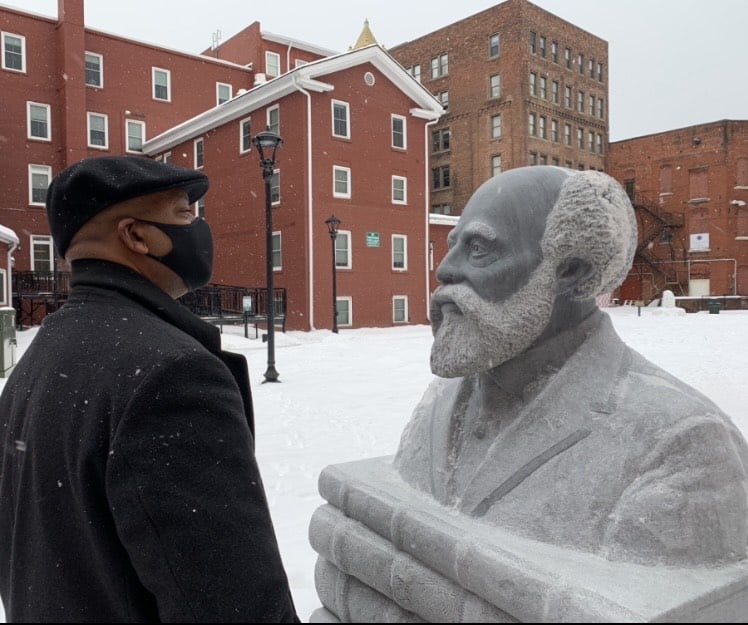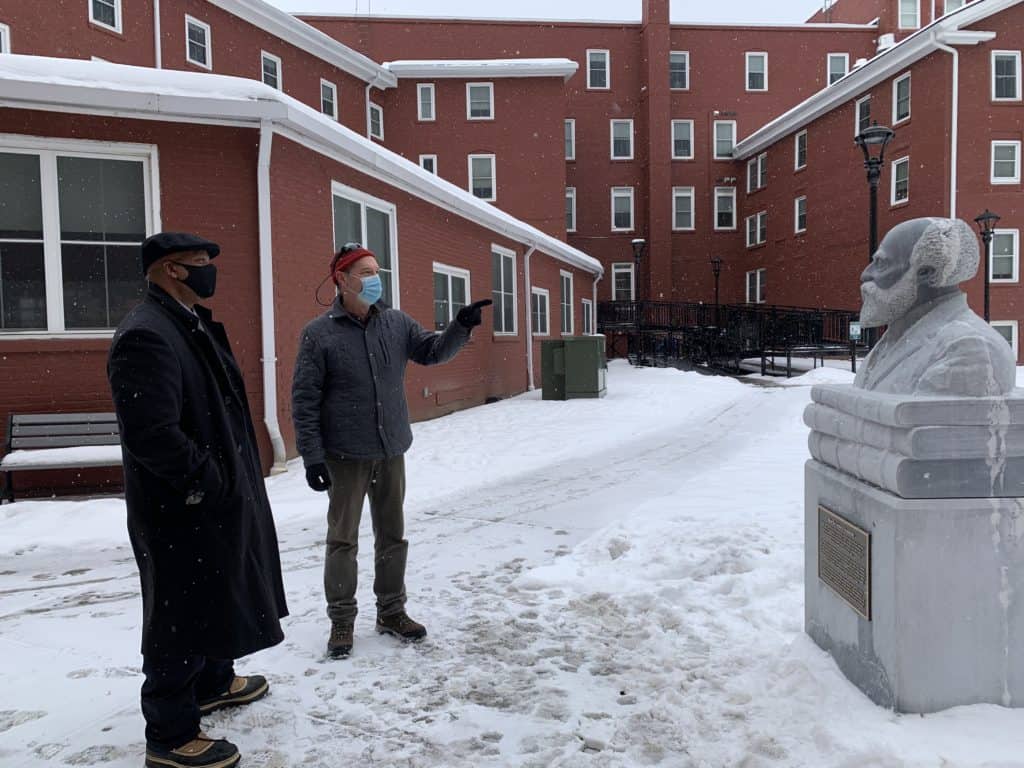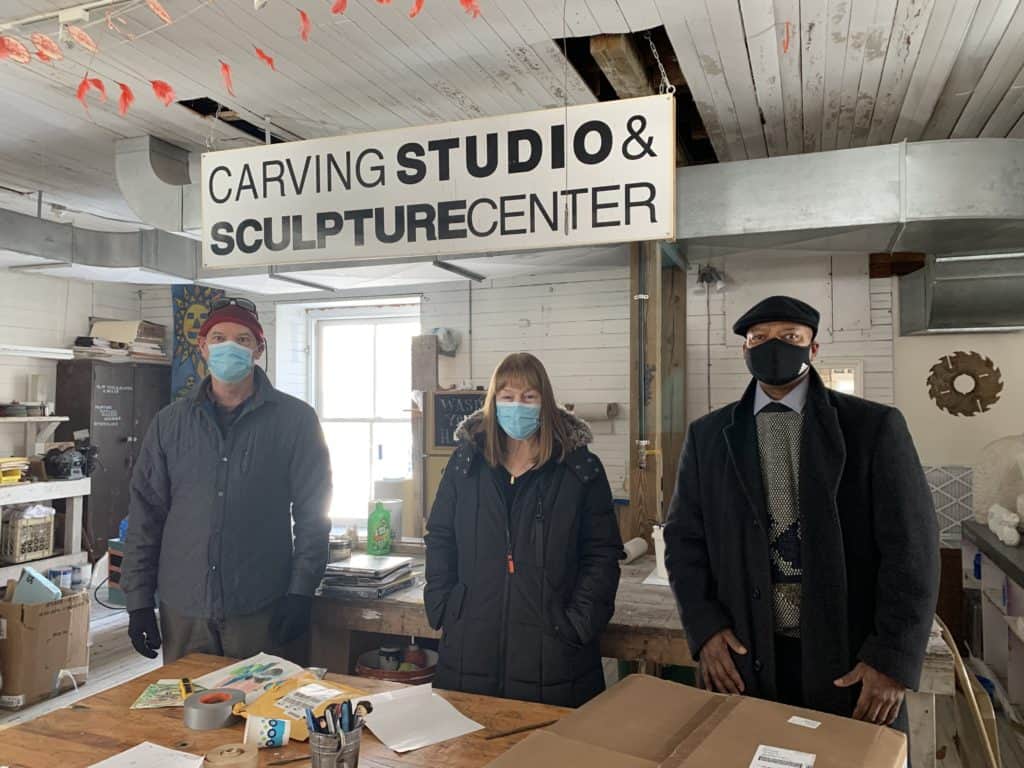
Designer Mark Burnett sees his sculpture of V ermont’s Martin Henry Freeman , the first Black president of a college in the U.S. for the first time during Black History Month.
Sculpture designer honored to see his work for the first time during Black History Month
By Victoria Gaither
The Martin Henry Freeman sculpture took its place on the Downtown Rutland Sculpture Trail and Vermont African American Heritage Trail on Nov. 20, 2020. But Black artist Mark Burnett made his first trip to see the statue earlier this month.
“It’s my first time seeing it in person,” Burnett said. “Wow! I’m here looking at it, and I’m amazed.”
Burnett’s design chosen for the project comes at a time when states are taking statues down, as America wrestles with its past.
“To see my work and that of stone carver Don Ramey, during Black History Month is important. It means so much to see it in February,” Burnett said.
Ramey, charged with turning Burnett’s artwork into a stone masterpiece, said he learned a lot about Freeman through the process. “It was very interesting to read — especially in some of his own writings — and how timely and current his thinking was to be able to live as a free man in the United States.”
Martin Henry Freeman was born in Rutland and later became the first Black president of an American college. Visitors and locals can view the the larger-than-life stone bust of Freeman that rests on a stack of three books in Downtown Rutland’s Center Street alley public outdoor space.

Stone Carver Don Ramey points out details in the Freeman sculpture to Designer Mark Burnett.
Freeman eventually left America due to racism and moved to Liberia, Africa to teach and live as a free man. He later would become president of Liberia College.
Kaifa Dennis, a descendant of Freeman who lives in the Washington, D.C. area, said his family is “immensely grateful to the City and people of Rutland, Vermont, especially to those who made financial and in-kind contributions towards the sculpture honoring our remarkable ancestor.”
During a phone interview Dennis said, “I was almost brought to tears when I first laid eyes on the sculpture.”
He said his family will attend the official dedication ceremony in Rutland this spring.
Steve Costello, one of the trail organizers, explained why Freeman was chosen as a subject: “I think Freeman is a heroic figure. He was a staunch abolitionist and advocate for the education of Black men and women. He devoted much of his life to seeking equality.”

Stone Carver Don Ramey (left), Executive Director Carol Driscoll (center), and Designer Mark Burnett (right) pose for a photo at the Carving Studio.
The hope is having the Freeman sculpture celebrate its first Black History Month will change some people’s thoughts about Rutland.
“We want to map a different vision of Rutland, one of diversity and inclusion,” said Carol Driscoll, executive director of the Carving Studio Sculpture Center.
For now, Freeman carved in stone for all to see and learn from has designer Mark Burnett feeling proud and honored to be apart of a remarkable team effort to bring the Rutland native to life.



